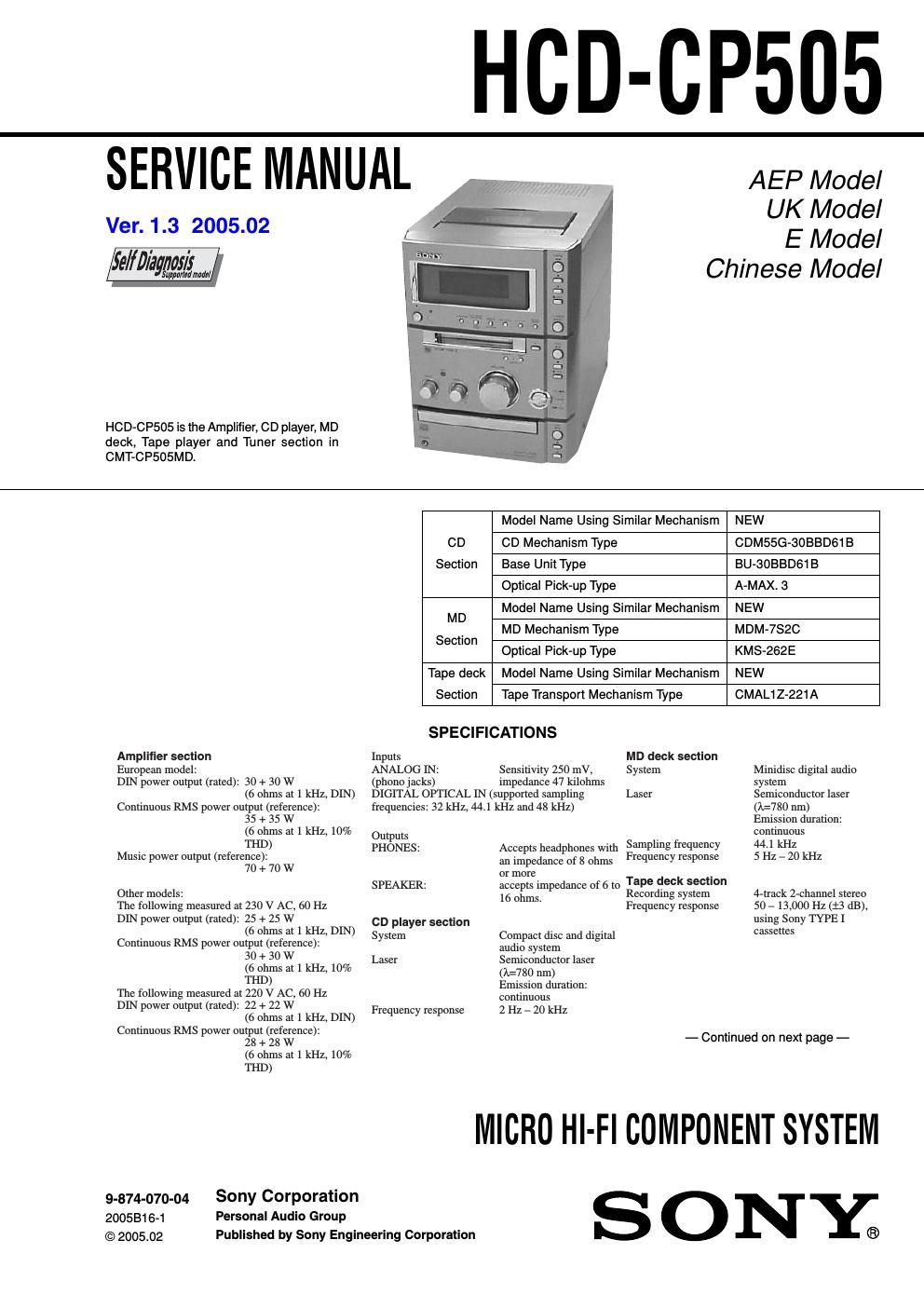Sony hcd cp 505 service manual
This is the 106 pages manual for sony hcd cp 505 service manual.
Read or download the pdf for free. If you want to contribute, please upload pdfs to audioservicemanuals.wetransfer.com.
Page: 1 / 106
